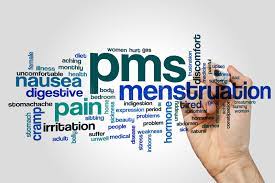What is Premenstrual Syndrome (PMS)?

Premenstrual Syndrome (PMS) can negatively impact on women in may ways. We write to share helpful information about PMS, including PMS symptoms & tips including natural methods to manage PMS, and provide suggestions about when it may be necessary to seek help.
PMS is a series of emotional, physical, and behavioral symptoms that appear 1-2 weeks prior to the start of your period. About 3 of every 4 menstruating women have experienced some symptoms of premenstrual syndrome. Symptoms occur in an expected pattern and may vary monthly. These changes are signs that your period is on the way. Some women experience very few symptoms (1-2), but others can experience greater numbers of PMS symptoms and those symptoms may be severe and even require medical assistance. Below is information regarding PMS symptoms, effects of PMS on women, and tips to manage PMS.
Why PMS Symptoms & What does it look like?
The effects of PMS impact on different areas of a woman’s life. Depending on the individual, the causes of PMS symptoms can vary and include a mix of mental, behavioral, emotional, and physical causes.
Causes
a) Cyclical Hormonal Changes: hormonal fluctuations cause changes in the signs and symptoms of PMS.
b) Chemical changes in the brain: changes in serotonin (neurotransmitter which plays an important role in mood) can be a possible trigger for PMS symptoms. Low serotonin can cause depression symptoms, sleep issues, fatigue, and food cravings.
c) Depression: some women who experience undiagnosed depression may be experiencing severe PMS symptoms.
Mental/behavioral/emotional
Mood swings, anxiety, feeling tensed or keyed up, depression (feeling sad suddenly, tearful), increased sensitivity to rejection), irritability or anger. Concentration issues, feeling overwhelmed or out of control. Difficulty managing interpersonal conflicts, social isolation or withdrawal, and change in libido.
Physical
Swollen, tender and/or painful breasts, headaches or migraines, fatigue, difficulty with sleep, changes in appetite, food cravings, joint or muscle pain, a ‘bloating’ sensation or weight gain, acne flare-ups, constipation, or diarrhea.
As overwhelming as these symptoms can be, there are some tips you can use to help to ease them.
PMS Tips & Tricks
- Keep track of your menstrual cycle, including your PMS symptoms. Knowing when your symptoms will appear or what type of symptoms may occur can help to manage symptoms.
- Exercise; keep moving. Exercise has been shown to improve mood, physical and mental health. Through it, your body releases chemicals that make you feel more relaxed, which can help reduce stress and depression symptoms. Yoga is a great form of exercise that can help with relieving stress and body pains.
- Take natural supplements to reduce and manage symptoms. For example, magnesium, calcium, and Gingko biloba have been used to improve PMS symptoms. This link below has a list of supplements and how to use them: https://www.healthline.com/health/pms-supplements
- Eat more fiber and a lessened salt rich diet, especially during the PMS time of the month. Fiber rich foods (oats, barley, whole grain breads, vegetables, and beans) help rid your body of extra estrogen.
- Stay hydrated. Water is helpful for many things including ‘washing down’ extra salt in your body that causes swelling and bloating.
- Reduce or avoid sugary snacks altogether during the PMS week since they can raise your blood sugar levels. Sugary snacks lead to you feeling more prone to feel fatigued and irritable.
- Get enough sleep. Need we say more? Being well rested has many health benefits, including mood and energy level improvement.
When to Seek Help
In addition to the above suggestions, for some women seeking additional help to manage PMS symptoms may be necessary and very beneficial.
A small number of women experience PMS symptoms on a disabling level monthly. This form of PMS is called premenstrual dysphoric disorder (PMDD). PMDD’s symptoms are similar, but more severe than PMS symptoms. They include depression, anxiety, mood swings, anger, feelings of being overwhelmed, irritability, and difficulty concentrating. Women that experience PMDD may experience significant effects on their ability to function in their day to day lives and in their relationships with others.
If your symptoms are overwhelming to the point of crucially impacting your daily life/activities, it is important to see your doctor and discuss if hormonal contraceptives (can reduce PMS symptoms) or psychotropic medication can be used to help. Do not hesitate to reach out to a mental health counselor if you need to as well. PMS symptoms can be overwhelming, but with support and help, they can be managed. We at VWWC welcome the opportunity to help you on your wellness journey. Contact us to set up a session.
Get In Touch
To know more about the programs we offer or to receive our counseling services get in touch with us at https://www.vibrantwoman.me/get-in-touch/ and to learn tips for improved mental, physical, and spiritual health follow us https://www.instagram.com/vibrantwomennyc/

